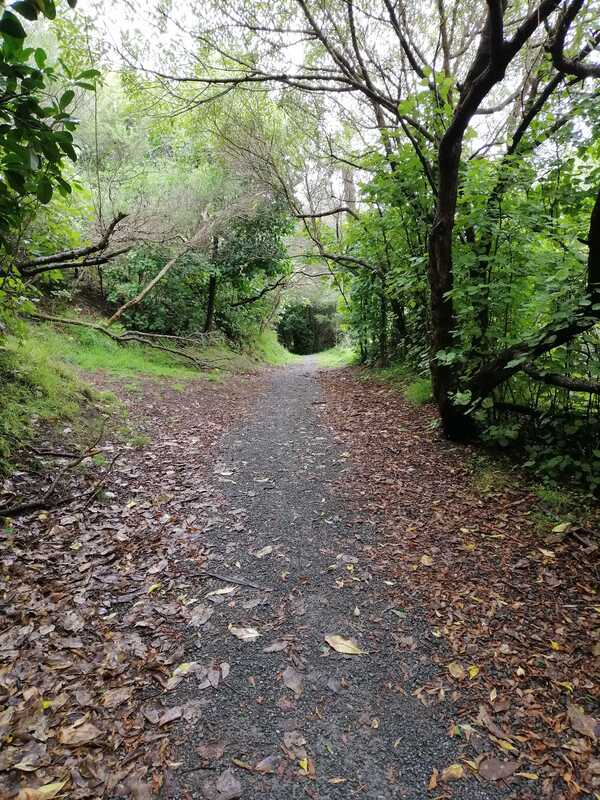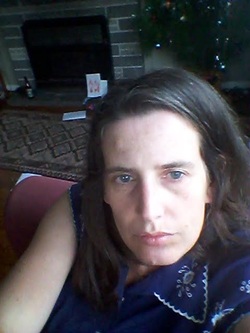In favour of Helen Lehndorf's A Forager's Life
In Wellington, in the 1990s there was a time when every public meeting would be attended by two or three people who would wait until question time, shoot their hands up, and proceed to talk about the problem of over population. It didn’t matter if it was the gulf war, or native forests or violence against women, underlying all those problems was over population. And when told that they must ask a question, not just make a prepared speech, they would say Ahem my question is does the speaker believe that underlying the problem at hand is the issue of overpopulation, as evidenced by etc etc. In this view of the world the problem is people. And as climate breakdown has became more widely understood there are now even more groups who view people entirely as a problem. Some go further and advocate voluntary extinctionism. The planet is better off without us, we caused the problem, they argue, let’s go, let’s stop breeding, let’s die out. The wilderness will return and the great balance of nature will be restored. Helen Lehndorf is not one of those people. Helen Lehndorf in life and in this beautiful new book A forager’s life does not pit planet against people, plants versus us: capitalist, nihilistic zombies. Rather Helen is wise enough to know that communities, that people, problematic, flawed, culpable as we are, are also our only hope. We can not and should not wish ourselves away. Helen is humane, a humanist, a wilderness lover, a wasteland lover, a cook, an eater, a community builder, a daughter, friend, lover and mother. This book traverses her life, and it’s a life filled with community. Helen’s ecosystem is of people and plants, food, family, friends. She doesn’t choose sides but gathers all of it to her. The weeds, the friends, the families, the compost heap, the wild herbs, the conversation. She forages the lots. The commons are the community are the commons. When we read this book we look at the world with Helen’s eyes. Brown owl, her Mum called her, watching her brown-eyed daughter watching the world. We are with Helen when she’s four years old bursting with the importance of a new magnifying glass, looking intently through it at leaves and ladybirds and the hairs on her arm. We’re with her as an adult looking through a coveted hag stone, a stone with a perfect hole created by moving water, looking at how it frames the world in new ways. We’re looking with her eyes and everywhere we turn there is community. Helen’s family of origin: a father who took her hunting, her soup-making mother, her adventurous brother; Neighbourhoods that shared anything going spare; older witchy punk women who kept an eye on baby punk Helen and her friends, who taught them feminism over cups of glamorous herbal tea; her idealistic university friends with whom she spent hours talking through life’s big questions; her husband Fraser and eventually her children, her permaculture group, the women she writes with; other mums she forms a group with after advertising, after leaving posters around town pleading, talk to me about justice, let’s grow food, let’s drink tea--a call into the wilderness of suburban Palmerston North. Helen’s living off the land is no Thoreau retreat into the wild woods (actually not that far from his Mum’s house who allegedly brought him sandwiches). This is not spurning one’s own kind. Rather it is choosing to turn more determinedly and more wholeheartedly towards both the land and towards the people who can help her navigate it. Helen never loses sight of the fact that the same systems that have devastated the environment have also uprooted and disenfranchised communities. Helen writes here of losing a favourite foraging spot to development, but she is, as always, talking about something bigger.. My side was the guerrilla-gardening side, the seed-bombing side, the community side, the urban foraging, plant-medicine-making, heritage-variety-saving-side. My side cared about old trees. Too often it felt like my side was losing. It was hard to look at the devastation. This book reminds us that we can still choose sides. We can choose the systems that cause environmental and community devastation. We can choose the cynicism of voluntary extinctionism. Or we can choose as Helen has, the hope and possibility of foraging, of community, of radical reciprocity. I’d like to end with Helen’s own words of an occasion, such as this, in which a momentary community is formed, to celebrate, with people who have never met in quite this configuration before. Because to get through these times, whatever these times are, whatever getting though is, we need to be opportunistic, we need to seek what nourishment we can, we need to find and forage each other. Helen thank you for this book, beautifully written, compelling and about the stuff that matters now more than ever. The dining table was laden with colourful potluck dishes. When it was time to eat I stood on the back porch and rang a loud dinner bell. Our friends lined up in a queue that spiralled out of the kitchen, through the laundry and into the garden. The site of this long dinner line full of beloved friends holding empty plates to be filled from our collective efforts made me happier than I felt in years. Potluck food, friends strumming guitars around the fire, lying on picnic blankets among the romping weeds. Humble, but to me a kind of heaven. Buy A forager's life online or it's absolutely everywhere in the bookshops.
0 Comments
|
Categories
All
Archives
March 2023
(C) Copyright 2012, Mrs Loolupants, All Rights Reserved.
|



 RSS Feed
RSS Feed
